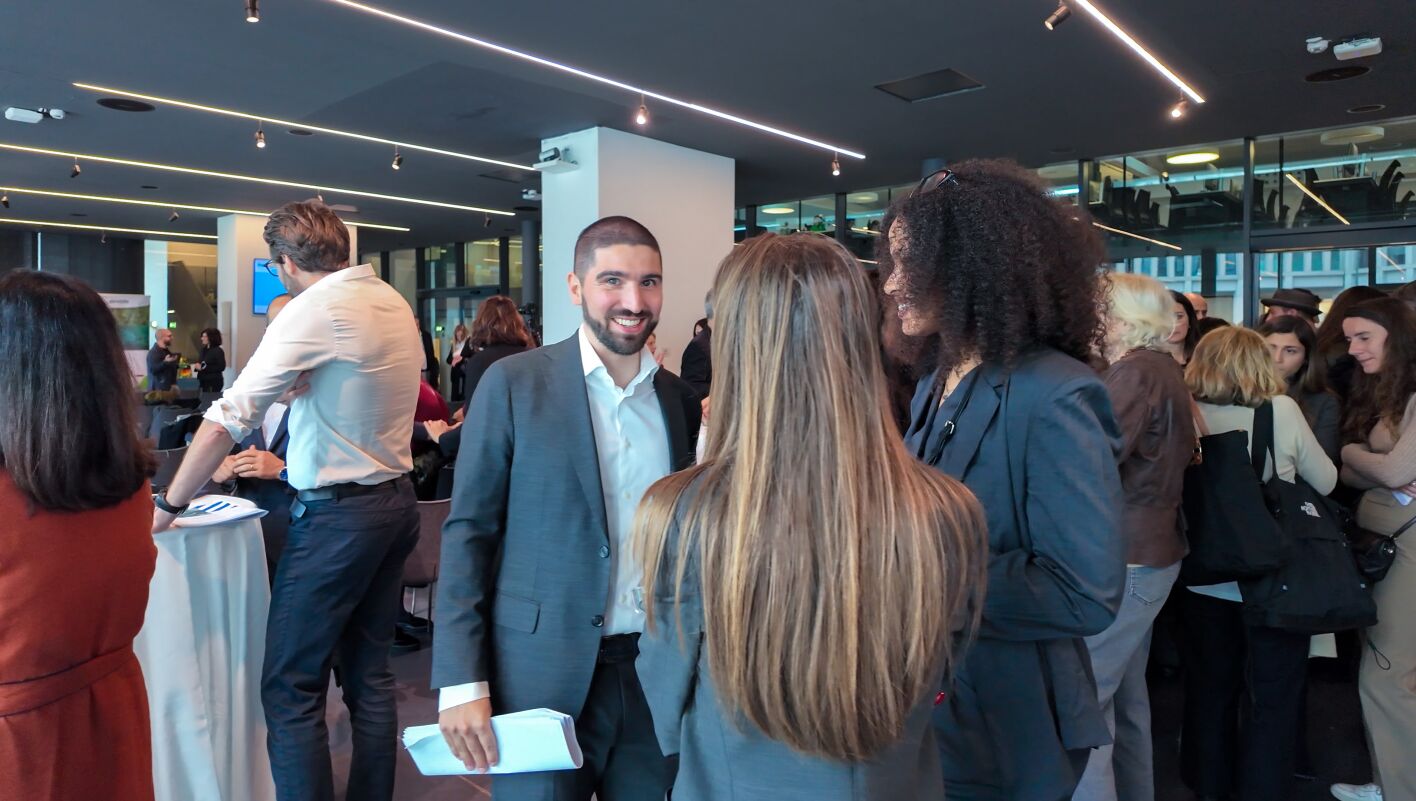An engaging and content-rich event, with over 100 participants and 32 speakers, focused on sustainability, innovation, and synergies for the future of the fashion and design supply chain.
The inaugural edition of Sustainable, Circular Fashion & Design – How to Generate Value in the Territory, held at Milano Luiss Hub, concluded with highly positive outcomes. It was an intense and well-attended day that successfully combined high-level content, meaningful networking opportunities, and concrete visions for a more sustainable future in the fashion and design sectors.
With over 100 participants and 32 speakers from the business, academic, and institutional worlds, the event provided a genuine space for discussion and collaboration on key topics such as circular economy, traceability, sustainable finance, and digital technologies including the Digital Product Passport and Blockchain. Through thematic panels, project pitches, and matchmaking sessions, the program fostered in-depth and inspiring exchanges, highly valued by the attentive and engaged audience.
Supported by Avvale, a leading company in digital innovation and sustainable transformation, the event brought together a diverse mix of stakeholders: fashion and design supply chain companies, startups and SMEs committed to circularity, third-sector organizations, consultancy firms specializing in ESG and green finance, as well as public institutions and industry associations. This diverse representation enriched the conversation, highlighting how sustainability is now a transversal strategic lever capable of uniting different competencies and perspectives toward a shared goal: generating positive impact, starting from the local level.
The success of this first edition underscores not only the urgency of addressing sustainability challenges in an integrated and systemic way, but also the growing willingness of stakeholders to collaborate. It sends a strong signal that encourages looking ahead to the next edition, with the aim of expanding participation, involving new players, and further establishing Milan as an international hub for sustainable innovation in fashion and design.
The contribution of Milan’s four major universities—Politecnico di Milano, Bocconi University, Bicocca University, and the University of Milan—was crucial. Participating as knowledge partners within the MUSA project, they provided essential scientific support to the event, strengthening the dialogue between research, innovation, and practical application.
Leading up to the event, BioEcoGeo, the initiative’s promoter, conducted an in-depth editorial campaign: more than ten articles were published in the preceding weeks and shared via the magazine’s LinkedIn page, helping to spark interest and prepare the audience for the program’s themes. During and after the event, interviews and multimedia content continued to fuel the online conversation, attracting attention and engagement from the professional community.





